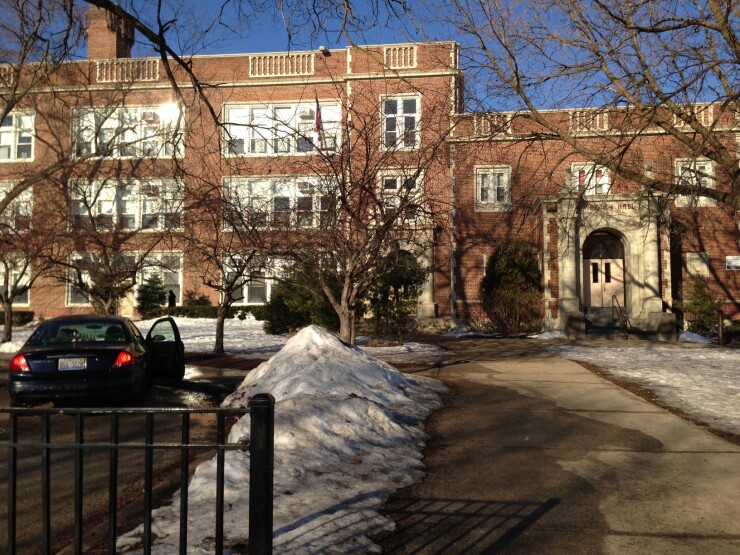CHICAGO — Chicago Public Schools’ gradual fiscal progress, as displayed in its newly published
The district, to which three of four bond rating agencies assign junk ratings, is restoring long depleted fund balances and has closed budget gaps with the help of a boost in state aid but it remains reliant on about $1 billion in cash flow borrowing to manage through the school year.

“CPS is gradually making progress in addressing its budgetary challenges evidenced by a return to a positive fund balance, less reliance on short-term borrowing, and an improvement in its liquidity,” S&P said in a special bulletin published Wednesday. "In our view, fiscal 2018 remained structurally imbalanced due to the board's reliance on debt and other one-time actions to cover the budget gaps.”
Over several years, the district has trimmed its tax anticipation borrowing from a high of $1.55 billion to under $1 billion. The board reported a $599 million net change in its general fund balance, resulting in a return to a positive position.
The unassigned fund balance is nearly $244 million of the total fund balance of $324 million and it equals an adequate 4.4% of expenditures on a $5.5 billion general fund budget, S&P said. The latter results were due in part to a $287 million transfer from the district’s debt service fund that followed a debt restructuring and reimbursement of swap termination payments.
Near and longer-term strains remain, S&P said.
The district’s 8.5% increase in spending this year despite enrollment declines, the affordability of planned capital spending, looming contract negotiations, special education spending pressures, and ongoing sexual harassment scandals and lawsuits all pose near-term risks.
The district’s last offering statement does not list under the litigation section any lawsuits directly linked to a sexual abuse reporting scandal or the potential for future fiscal liabilities stemming from a series published by the Chicago Tribune about reporting and investigative failings on CPS’ part.
Longer-term, the board's sizable debt burden of about $9.5 billion, its $12.4 billion pension tab and 50.1% funded ratio weigh on the credit profile.
The outcome of the mayor’s race also looms large. More than a dozen candidates are vying to replace Mayor Rahm Emanuel who did not seek re-election. The new mayor, who will hold sway over board of education appointees and handpicks the chief executive officer, takes office in May which could result in changes to spending and policy priorities.
“In our view, it is likely that the relationship with the teachers' union will change in a way that makes increased labor cost spending more likely,” S&P said. The teachers’ contract expires at the end of June. Future management is also at stake as many candidates support an elected board."
The board's financial position also remains heavily dependent on Illinois fully funding its evidence-based formula and on a timely basis.
The district’s ratings have risen thanks to $900 million in new, long-term funding measures enacted over the last two years providing new state aid and authorizing various local capital and pension levies.
Borrowing remains costly, but the improved fiscal picture has trimmed yield penalties.
The district sold $760 million of its junk-rated GOs, $86 million of its BBB to A-rated capital improvement tax bonds and $200 million of tax anticipation notes late last year. Kroll Bond Rating Agency is the one rating agency that does assign the district’s GOs an investment rating in the in the BBB category.
An uninsured nine-year bond in GO deal landed at a 207 basis point spread to the Municipal Market Data’s top benchmark, compared to 223 bps on its sale earlier in 2018. The longer bond in the late 2018 deal with a 28 year maturity landed at spreads of 201 and 206 bps, on par with a sale earlier in 2018 of 207 bps.
Triple-B spreads at the time of pricing were at 80 to 90 basis points, said Daniel Berger, senior market strategist at MMD - Refinitiv.
Before the state approved new pension and education aid funding in mid-2017, the district’s spreads on its long bonds sold at a 485 bp spread.
The CIT bonds sold late last year landed at spreads of 112 bps on a 2033 maturity and 110 bps on a 2046 maturity.
The district’s late 2018 notes paid a yield of 2.4% on one tranche and 2.65% on another. Both mature March 29. The district paid a rate of about 4.8 % on TANs sold in its prior fiscal year.





